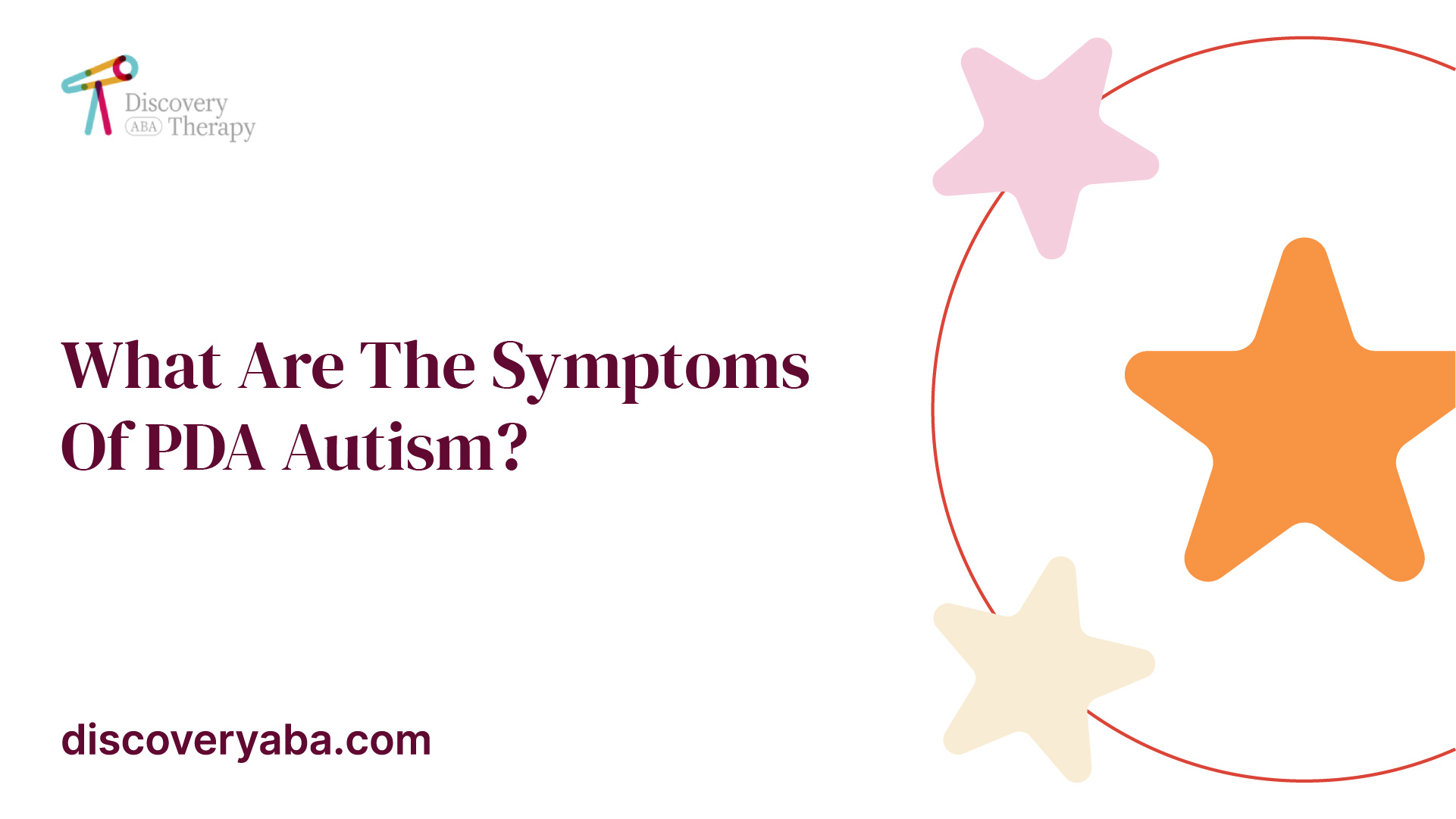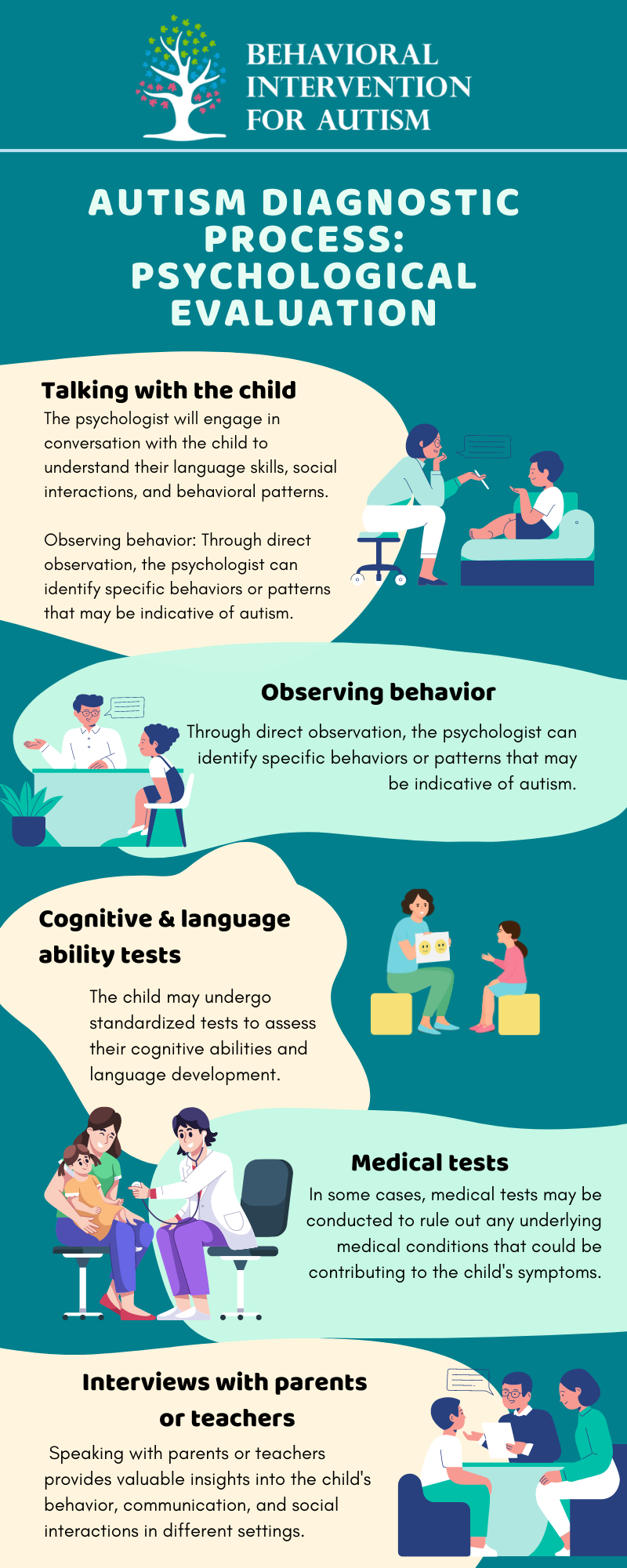Top benefits of routine-based learning guided by an Autism Therapist
Top benefits of routine-based learning guided by an Autism Therapist
Blog Article
Secret Symptoms And Signs to Recognize in People With Behavior Autism
When you encounter a person with behavioral autism, identifying vital symptoms and signs is essential. You could see difficulties in social interactions and communication, in addition to a strong requirement for regimens. Additionally, sensory sensitivities can lead to frustrating experiences. Comprehending these characteristics can improve your assistance and interventions, yet there's more to discover regarding just how these actions show up in daily scenarios. Allow's discover what these signs really look like.
Difficulties in Social Interactions
When you communicate with someone on the autism range, you could discover they deal with social cues and communication. These difficulties can make social communications feel frustrating for them. You may see them preventing eye call or standing also close or too far away during conversations, which can create misunderstandings. They may not notice body language or face expressions, making it harder for them to determine exactly how others are really feeling.
Additionally, you might find that they favor regimens and acquainted setups, which can limit their determination to involve in new social circumstances. When they do engage, they could discuss their passions in excellent detail without observing if you're interested. This can bring about discriminatory conversations that leave you feeling disconnected. Understanding these obstacles can help you come close to interactions with compassion and patience, cultivating a more comfy environment for both of you.
Trouble With Verbal and Non-Verbal Communication

Identifying these indications is crucial, as it helps you better support and engage with people on the autism range. By understanding their communication obstacles, you can foster much more purposeful links and provide a much more encouraging setting.
Repetitive Habits and Regimens
Interaction challenges typically come with various other signs of autism, such as repeated actions and a solid preference for routines. You may observe that people with autism frequently engage in certain, repetitive activities, like hand-flapping, shaking, or repeating expressions. These actions can offer comfort and a feeling of control in a commonly overwhelming globe.
Routines are similarly crucial; numerous individuals flourish when they comply with an organized timetable. You might discover that modifications to these routines can result in significant distress. For instance, if they have a daily ritual of consuming morning meal at a details time or adhering to a specific path to school, any disruption can create anxiousness.
Identifying these patterns assists you comprehend their behavior and give assistance. By accommodating their need for regular and enabling repetitive activities, you can produce a more comfy atmosphere that eases their obstacles.
Sensory Sensitivities

Typical Sensory Triggers
Sensory level of sensitivities can considerably influence day-to-day live for people with autism, as certain stimuli usually set off frustrating reactions. Typical sensory triggers consist of loud sounds, brilliant lights, and solid scents. You might observe that abrupt sounds, like alarm systems or sirens, cause stress and anxiety or distress. Fluorescent lighting in stores can feel unpleasant and extreme. Appearances can additionally play a significant function; rough materials or particular food appearances might be unbearable for you. In addition, crowded places can overwhelm your senses, making it difficult to kick back or concentrate. Recognizing these triggers can aid you handle your setting much better. By recognizing what affects you, you can take steps to reduce discomfort and enhance your everyday experiences.
Behavior Actions Described
Recognizing your behavior reactions to sensory sensitivities is important, as they frequently reveal just how you connect with the globe. You may notice that particular audios, lights, or structures overwhelm you, leading to anxiousness or discomfort. When faced with these stimulations, you may withdraw, cover your ears, and even react aggressively. These feedbacks aren't just quirks; they're your means of coping with overstimulation. You might likewise find on your own looking for particular sensory experiences, like deep pressure or peaceful environments, to aid ground yourself. Identifying these patterns assists you understand your requirements far better and can direct just how you interact them to others. By acknowledging your sensory level of sensitivities, you can work in the direction of creating an atmosphere that feels a lot more manageable and comfortable for you.
Coping Techniques Introduction
Recognizing your sensory sensitivities is just the primary step; now it's time to check out coping techniques that can assist you manage those experiences successfully. Beginning by creating a sensory toolkit tailored to your requirements. This might consist of noise-canceling earphones, fidget playthings, or calming scents. Establishing an organized regimen can additionally give predictability, reducing anxiety around sensory overload. When you really feel overloaded, take breaks in a peaceful room to collect yourself. Practicing mindfulness techniques like deep breathing can help ground you in the moment. Additionally, communicate your needs with those around you; having supportive pals and household can make a massive distinction. Bear in mind, locating what functions finest for you may take some time, so be patient and open to attempting new methods.
Restricted Interests and Emphasis
While lots of individuals develop a vast array of rate of interests, those with autism typically demonstrate limited rate of interests and an intense concentrate on certain topics. You might see that somebody with autism can spend hours diving into their favored subject, whether it's a particular kind of train, a particular film, or a clinical idea. This extreme focus isn't just a hobby; it can come to be a central component of their identity and social communications.
You may find that discussions focus on these rate of interests, and they may battle to participate in more comprehensive topics. For them, these concentrated interests give comfort and a feeling of mastery. While it's vital to motivate expedition of new topics, appreciating their passions is similarly important. By recognizing and acknowledging these limited passions, you can promote an encouraging environment where they really feel valued and recognized, enabling even more purposeful connections and communications.
Emotional Guideline Troubles
Individuals with autism frequently encounter difficulties in emotional guideline, which can be affected by their intense concentrate on particular interests. You might notice that when a person is deeply involved in a favored activity, they can experience strong feelings, whether exhilaration or stress. This strength often makes it difficult for them to shift equipments or handle their sensations when points do not go as prepared.

Variability in Developing Landmarks
When it comes to developing turning points, you'll observe that people with autism usually reveal a vast array of irregularity. You could see a youngster succeed in language abilities but battle with social communications.
It's important to recognize that each individual's trip is one-of-a-kind. Some might create complicated skills early, only to face challenges later. Others could take longer to attain fundamental turning points but then grow in details locations. Observing these patterns can assist you understand their strengths and requires much better.
Frequently Asked Inquiries
Exactly How Is Autism Identified in Kid and Grownups?
To diagnose autism in children and grownups, experts assess actions, interaction skills, and social communications. They commonly utilize standard examinations, interviews, and monitorings to identify if an individual satisfies the criteria for autism range disorder.
Are There Various Kinds Of Autism Spectrum Disorders?
Yes, there are various sorts of autism range disorders, consisting of Asperger's disorder and pervasive developing disorder-not otherwise specified. Each type differs in seriousness and qualities, so recognizing these distinctions can assist you far better support people with autism.
What Treatments Work for People With Autism?
When considering reliable treatments for individuals with autism, you'll discover alternatives like Applied Behavior Evaluation, speech treatment, and occupational treatment. Each strategy can help enhance interaction, social abilities, and daily working customized to individual needs.
Can Individuals With Autism Lead Independent Lives?
Yes, people with autism can lead independent lives. With the appropriate support, skills training, and resources, you can assist them create self-sufficiency, manage daily tasks, and prosper in numerous environments, fostering their self-reliance.
Exactly How Can Family Members Assistance Enjoyed Ones With Autism?
You can support your loved ones with autism by creating a structured atmosphere, motivating their rate of interests, exercising patience, fostering interaction, and promoting social skills. Celebrate their achievements, regardless of exactly how little, and develop a helpful neighborhood.
Although lots of people on the autism range can utilize and comprehend language, they commonly encounter substantial difficulties with both non-verbal read more and verbal communication. Recognizing these signs is important, as it helps you better assistance and involve with people on the autism spectrum. You might notice that people with autism usually involve in certain, repeated actions, like hand-flapping, shaking, or duplicating expressions.Sensory sensitivities can considerably impact day-to-day life for people with autism, as specific stimuli frequently set off overwhelming responses.When it comes to developmental turning points, you'll notice that people with autism usually reveal a large range of irregularity.
Report this page